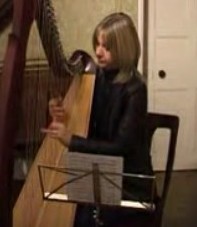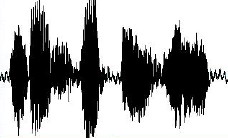DEPARTMENT OF SPEECH, HEARING & PHONETIC SCIENCES UCL Division of Psychology & Language Sciences |
 |
|
|
John Wells’s phonetic blog — archive, January 2009To see the IPA phonetic symbols in the text, please ensure that you have installed a Unicode font that includes them all, for example Lucida Sans Unicode or Charis SIL (click name for free download). Browsers: I recommend Firefox (free) or, if you prefer, Opera (also free). email:
mia vortaro-blogo
|
Friday 30 January 2009 | Calon lânSome of the emails that come to me out of the blue are difficult to know how to reply to. Here, unedited and in its entirety, is one that came the other day, with the subject line "Welsh phonetics". Have you any idea where I can obtain a phonetic version of the welsh song " calon lan " please I should explain that Calon lân (‘A pure heart’) is a well-known Welsh hymn, often sung for example at international rugby matches. Unlike, say, Cwm Rhondda, which is often sung in English under similar circumstances (“Guide me, O thou great Jehovah”), Calon lân is always sung in Welsh, even in the non-Welsh-speaking parts of Wales, perhaps because it has no established English translation. Welsh spelling is extremely regular. If you know the spelling-to-sound correspondences, you can just read a written Welsh text out, sound by sound, with only very occasional uncertainties or exceptions. My correspondent probably doesn’t know this, or doesn’t know what the spelling-to-sound correspondences are. Otherwise he wouldn’t be asking for a transcription of a particular text. It’s also possible that he’s not familiar with phonetic symbols, either. If he were he would probably not ask for a phonetic version but a phonetic transcription. (People sometimes ask for a phonetic translation, which is even more confused.) It may be, then, that what he wants is a guide to the pronunciation using English spelling conventions. Since Welsh contains both consonants and vowels unknown in English, this is not a satisfactory way of proceeding. I suppose it might begin need oo-in govin buh-wid moythis, but already we are up against the problem of how to represent the Welsh stressed schwa in an open syllable. The second line, perhaps ire uh beed nye behr-lye mahn, brings us up against the problem of how to write aj (ai) unambiguously, and how to show er in a way that won’t be read as ɜː. So here it is in orthography and in IPA.
There are several excellent versions of this hymn to listen to on the web. Take your pick of Siân James, Cerys Matthews (who gives us a final extra chorus to the tune Hyfrydol), Kathryn Jenkins, the Welsh rugby team, and Bryn Terfel. There are occasional minor differences in the wording (e.g. Bryn Terfel sings Does ond rather than Dim ond), and various phonetic differences reflecting local pronunciation (e.g. Kathryn Jenkins pronounces rwyf as if spelt royf, cf. llwyd becoming the English name Lloyd). In the refrain, note the successive mutations of the word for ‘sing’, which appears as ganu (soft-mutated), canu (basic form) and chanu (so-called aspirate-mutated, i.e. changed to a fricative). |
|
Thursday 29 January 2009 | A huge queryMariano Mazzeo (blog, 27 Jan) continues In a dialogue to practice the “h” sound, I included the word “huge”. Yet, according to Peter Roach, the combination hj should actually be transcribed ç. This is the sort of topic one can set in an MA phonetics exam. Recall that ç is the IPA symbol for a voiceless palatal fricative. Yes, huge can be pronounced çuːdʒ and often is. Yet all our pronunciation dictionaries transcribe it hjuːdʒ — including EPD, which is edited by Roach himself. There are two points that we need to make, one phonetic and one phonological. Phonetically, there is a range of possibilities for the part before the vowel in this word. You can get a kind of weakly palatalized h that gradually acquires more friction and more palatality, while remaining voiceless, so a sort of hj changing into j̊. It is difficult to decide whether this is one phonetic segment or two. The next stage is for the voicelessness of the h to be produced simultaneously with the palatality of j, so that we get a single segment, weakly fricative or indeed quite strongly fricative, ç. However there is no possible contrast in English between hj and ç. The ç can be regarded as a realization of the phoneme string hj. There are a few candidates for minimal pairs, such as çuː Hugh vs. ʃuː shoe. But these do not justify our recognition of an additional fricative phoneme ç. Better by far to analyse it as representing the phonemic cluster hj. Otherwise we would be faced with a dilemma in words such as pure, cure, where we would have to decide whether to regard their voiceless palatal element as phonemically j (so pjʊə, kjʊə) or ç (so pçʊə, kçʊə). This is a false choice as the two possibilities are not in contrast. In French, because of voicing assimilation, the word pied is typically realized as pçe. But no one suggests according the voiceless palatal fricative phonemic status in French: it is obviously just an allophone of j, and your French dictionary will show the pronunciation as pje. Back to huge: one of the justified criticisms of strict taxonomic phonemics as practised in the middle of the last century is that the biuniqueness requirement that was insisted on in those days (each phonetic segment mapped onto a phoneme, each phoneme mapped onto a phonetic segment) rules out the obviously sensible solution in which we map a possible single phonetic segment ç onto a two-phoneme sequence hj and vice versa. Since the overthrow of taxonomic phonemics no phonologist has had any difficulty with such a solution. It is perhaps only in the language-teaching classroom that taxonomic phonemics still holds out. |
|
Wednesday 28 January 2009 | Martha’s fracasWe all know the word fracas, right? It’s Spanish, right? (No, it isn’t: it’s French.) My former student Martha Figueroa-Clark, who now works for the BBC Pronunciation Unit, was interviewed on BBC Radio 6 yesterday morning on the burning issue of whether the word is to be pronounced ˈfrækɑː or ˈfrækəs. You can listen to this excellent interview here. (Thanks for the plug for LPD.) The interviewer, Shaun Keaveny, has quite a strong regional accent that to me immediately suggested Lancashire, perhaps not too far from where I come from myself; and indeed according to Wikipedia he was born in Leigh, ten miles from my home village. As Martha correctly reports, all British dictionaries agree on ˈfrækɑː, although the Americans say something different, namely ˈfreɪkəs or ˈfrækəs. The reason, no doubt, is that we learn French at school while they learn Spanish. Only someone who didn’t know French would pronounce an s at the end (we would like to think). Word-medial s is silent in aisle, island, isle, Carlisle, Grosvenor. The common-vocabulary word fracas belongs with apropos, bourgeois, chamois, corps, debris, patois and the proper names Arkansas, Calais, Beaujolais, Illinois and Rabelais in having a final silent (or ‘dummy’) s. In Carlisle there is no etymological support for the s; all the remainder are of French origin. But the derived adjective Rabelaisian has z. And (as Nigel Greenwood points out) Calais, Maine, rhymes with palace. But not Calais, France. PS ...though it used to, as several people have written to point out. And aisle, island are not of French origin, though they have been contaminated by isle, which is, although by now spelt île. And Harry Campbell draws my attention to the Burns couplet Let others Poets raise a fracas | bout vines an' wines an' drunken Bacchus. |
|
Tuesday 27 January 2009 | Epenthesized plosivesMariano Mazzeo, who teaches phonetics in Buenos Aires, asks Every time one of my students checks the word “something” in the dictionary, I have to explain Epenthesis. I usually resort to my own home-made explanation: “When a nasal sound is followed by a voiceless fricative, a voiceless plosive which is homorganic to the nasal may be included between them.” Then I point out a few exceptions, comment briefly on the possibility of epenthesis before a voiced sound and that’s about it. However, I have noticed some authors include the word “false” as an example, stating it might be pronounced fɔːlts. Should I include “l” in my explanation or does this example reflect a nonstandard pronunciation? Some speakers of English do not do plosive epenthesis at all: I am one of them. When my mother sent me to the shop to buy half a pound of mɪns I would come back with meat, mince; if she sent me for mɪnts, mints, I would come back with sweets. However it is clear that many, probably most, speakers have these words as homophones. They indeed follow the (optional) rule of inserting between a nasal and a voiceless fricative a plosive homorganic to the nasal. So we have fen(t)s, ˈkɒn(t)ʃən(t)s, ˈhʌm(p)fri, ˈgæŋ(k)stə (fence, conscience, Humphrey, gangster), etc. The important exception is where (in my analysis) there is a syllable boundary between the nasal and the fricative, e.g. ˌɪnˈsaɪd, kənˈsɪdə (inside, consider): this absolutely blocks epenthesis. Some#thing is a special case because on the whole we are aware of the morpheme boundary between the nasal and the fricative. That inhibits a possible ˈsʌmpθɪŋ, at least in educated speech. For EFL I would recommend ˈsʌmθɪŋ. So what about false? There are indeed some speakers who epenthesize between a lateral and a voiceless fricative, making fɔːls into fɔːlts. But those who do are fewer than those who epenthesize after a nasal. Cruttenden, in the latest (seventh) edition of Gimson’s Pronunciation of English (p. 252), says Such alternation does not apply in RP following /l/, so that else and melts have distinct final clusters. Nevertheless, one speaker who regularly epenthesizes in this environment is my colleague Patricia Ashby: so Cruttenden’s statement is perhaps too sweeping. If you want to give a comprehensive account of English plosive epenthesis, you could well mention the postlateral as well as the postnasal positions. |
|
Monday 26 January 2009 | C’est ça!I had been toying with the idea of cutting back this blog from five times a week to two or three. Sometimes as I sit down at the computer on a Sunday evening I wonder how on earth I am going to find enough material to write about, given my self-imposed requirement of five postings every week. (You may have noticed that my colleague John Maidment is suffering from blogger’s block, and hasn’t posted since the beginning of September.) Somehow or other, though, it has so far always worked out. Either I hear something, or I read something, or someone sends me an email, and each day the next topic presents itself. That’s how it was this weekend, when correspondents sent me three queries, each of which demands a blog-length reply. So that’ll keep me going at least until Wednesday. I said (blog, 23 Jan) that my knowledge of French is not good enough to enable me to make judgments about the likely French intonation pattern of the equivalent of Beats me!. Now Thomas Jauriberry of Strasbourg has looked into the matter. He sent a pdf (here), in which he includes waveforms and spectrograms of himself and another native speaker pronouncing sam de pas Ça m’dépasse. As far as I can see he is right in claiming that both of them use a low fall tone on the last syllable. He thinks that that is the “most common” intonation of the phrase. However... that does not answer the question of whether it is the only possible intonation pattern. After all, most phrases and sentences can be said with any of a number of different intonation patterns. The whole point of my posting was that Beats me! is different: it is an English intonational idiom, in that it cannot be said with any other tone than a fall-rise. What we need is native-speaker judgments of the acceptability or otherwise of ça m’dépasse spoken with, say, a final rise. |
|
Friday 23 January 2009 | Another intonational idiomI am always on the lookout for intonational idioms in English — idiomatic phrases that require a particular tone or tonicity, indeed seem ungrammatical if said with any other. I listed a few in this blog on 3 and 4 April 2006, including these which require the tone shown: /Oops! (I’ve dropped it.) I also mentioned some that require a particular tonicity, though not necessarily a particular tone: 'Search 'me! (= I don’t know) Here’s another one I’ve recently noticed. It seems to demand a fall-rise tone. 'Beats \/me! (= I don’t know, I can’t explain) Idiomaticity shades off into normality in some similar phrases: 'Don’t ask \/me! I find it more acceptable to replace the fall-rise by a fall on this one than on the preceding (staying with the idiomatic, not the literal, meaning): *'Beats \me! However, I haven’t tested these out on any other native speakers. Whereas Beats me! requires a fall-rise, I think that its German equivalent requires a fall. 'Keine \Ahnung! My spoken French isn’t good enough for me to attempt native-like intonation judgments. Cela me dépasse. |
|
Thursday 22 January 2009 | Yes, we can (and did)Harry Campbell writes When the name of the new US President starts to appear in dictionaries (don't tell me you were prescient enough to include it in LPD3?!), how will the pronunciation of his surname be recorded? Because I personally dislike what feel to me like awkward spelling pronunciations (condom ˈkɒndɒm as opposed to ˈkɒndəm I still find annoying, even though it is universal), I wonder if there is hope for əˈbɑːmə -- rather than the oʊˈbɑːmə that Wikipedia specifies, and which to me makes him sound as if he was of Irish rather than Kenyan ancestry (O'Bama). I think that I may be onto a loser here though. As for his first name, I don't detect much consensus. Wikipedia's bəˈrɑːk is no doubt what we'd expect in American English, but I don't picture British speakers taking to it [...] Will the UK settle on ˈbærək (too much like barrack?) or bəˈræk -- or is it a mistake to assume any consensus will necessarily emerge? Yours toward a new era of responsibility, Harry Campbell Believe it or not, I am proud to say that both Barack and Obama are in the third edition of LPD. Given that we went to press at the end of September 2007 and that an advance printed copy was in my hands a full twelve months ago, I think that self-congratulation is perhaps in order.
Whether I was correct in my estimate of the typical British and American versions of his name is of course another question. |
|
Wednesday 21 January 2009 | ch: spelling-to-soundOn the subject of spelling-to-sound rules (blog, yesterday), one of the strangest is the multiplicity of sounds corresponding to the spelling ch. Most often, as you know, it stands for tʃ: chin, child, church, teach.... These are mostly words of Germanic origin. In learned and scientific words of Greek origin, on the other hand, it stands for k: anarchy, character, mechanic, orchestra.... In words from French it depends on the date of borrowing. Words that have been in English since before the seventeenth century have tʃ like the old Germanic words: achieve, approach, chair, chamber.... But more recent borrowings have ʃ, as in French: brochure, champagne, machine, parachute.... Scots, Irish and Welsh names may have x, but are usually anglicized with k: Buchanan, Carnochan, Tulloch, Amlwch.... The same for German names, as Bach. People with x in their repertoire may use it for such names and also for vocabulary words known to be German, as echt. These rules do not help in the case of arch-, which has multiple origins. You just have to know that an archbishop behaves as Germanic, but an archangel as Greek. Apart from this, decoding the spelling ch is particularly uncertain with words from other foreign languages. In Italian, (c)ch stands for k, as in macchiato; but in Spanish it is tʃ, as in macho. The trouble is that many people cannot reliably identify the language from which a word comes, or do not know the various spelling-to-sound rules of the various languages. The Mayor of London, Boris Johnson, came out the other day with məˈkɪzməʊ for machismo. But this is a Spanish word, so ought to have been məˈtʃɪzməʊ (Spanish: maˈtʃismo). |
|
Tuesday 20 January 2009 | Learning the sounds?Synthetic phonics, according to a Sunday Times “briefing”on dyslexia (18 Jan., main section, p. 20) is a system in which children are taught the 43 sounds of English and how to blend them. Oh no it isn’t. It is a reading scheme. English-speaking children who are ready to learn to read and write already know the sounds of English. What they need to learn are the letters and the letter combinations that correspond to them in writing. True dyslexia (if it exists) involves the inability to identify letter shapes. If a b looks to you like a d, or you can’t reliably tell apart a p and a q, then you do indeed have a special problem in visual perception. Synthetic phonics very sensibly concentrates first on the regular spelling-to-sound correspondences. Rather than the rival whole word schemes (“look and say”), children first learn to spell out C-A-T = cat (which they can already name as a kæt). The cat sat on the mat. As explained in Wikipedia, Synthetic phonics emphasizes the one-to-one correspondences between phonemes and graphemes. In synthetic phonics programs students say the sounds for the graphemes they see and orally blend them together to produce a spoken word. In the context of phonics, the word blend takes on a different meaning from its use in linguistics. (In phonics, a blend is a letter combination, such as sh = ʃ.) But English-speaking children learning to read experience a special difficulty: the irregularity and inconsistency of our spelling-to-sound correspondences. Learning to read and write imposes an extra burden on the memory not required of, say, Swedish- or Polish-speaking children. It seems reasonable to conclude that some cases of supposed dyslexia may be due to difficulty in surmounting this extra hurdle. After all, there are very few adults who are entirely confident in their ability to spell every word they need. Most adults make occasional spelling mistakes, and many make lots. Many years ago I was engaged to teach some elementary phonetics to teachers of reading. I was astonished how difficult they, of all people, found it to distinguish between speech (something you can hear) and writing (something you can see). I encountered one teacher who honestly believed that θ as in thing consists of a t-sound followed by an h-sound. It looks as if the anonymous Sunday Times reporter may be guilty of the same confusion. |
|
Monday 19 January 2009 | Last year againI seem to be out on a limb with my reply to Kevin Tang (blog, 15 Jan.). Jack Windsor Lewis has already dedicated one posting in his blog to explaining how he disagrees with me, and now my colleague Jill House has also written. She says I found myself quite surprised by your response to Kevin Tang, because in my own speech I would definitely say lɑːstʃɪə, nekstʃɪə etc. I personally probably wouldn't then progress to lɑːʃtʃɪə, but as you say it is certainly a possibility. Eliding the t, as in lɑːsjɪə, feels very unnatural to me, as does the corresponding assimilated lɑːʃ (j)ɪə. Making the coalescent assimilation is certainly more likely for me with high-frequency words like 'you' and 'your', and I'd add 'year' to the list because it so frequently finds itself preceded by 'last' or 'next'. In the context of less common collocations, such as 'best yellow dress' or 'most young people' I'd probably end up affricating the t but without a full coalescence of the j : məʊstʃ jʌŋ. I'm coming to the conclusion that I resist t-elision before j. I wonder what others do? Maybe this is a possible area of investigation for an MA dissertation! That’s not a bad idea. The basic problem is that sometimes a phonetic string satisfies the conditions for more than one possible reduction. Then there may be extensive speaker-dependent variability about which of the competing pressures wins out. (I’m sure OT aficionados could have a field day with this.) To take another example, consider the t#j string in phrases such as what you want, don’t you think. (Here the preceding segment is not an obstruent: in last year it is.) The t satisfies the conditions for glottalling; but the tj sequence satisfies the conditions for yod coalescence. Obviously, you can’t have both. The speaker has to choose between wɒʔjuwɒnt and wɒtʃuwɒnt. Probably most people of my sort of background can do either of these. Introspecting, I suspect that sometimes I do one, sometimes the other. But other speakers are likely to have different proportions for the two possibilities: I might be 30%-70%, you might be 60%-40%, he might be 10%-90%. MA candidates, here’s your opportunity! |
Friday 16 January 2009 | Slavonic stressWord stress is easy in Polish: it goes on the penultimate. So we have pa'nowie, pano'wanie, panują'cego, with the stress shifting to each new penultimate as extra syllables are added at the end. OK, there are a handful of exceptions (including uniwersytet and fonetyka, with antepenultimate stress), but not enough to worry about. Yet when we turn to another Slavonic language, Russian, we find that word stress is the very devil. For any new word you learn you have to learn its stress, just as you do in English. That in itself is bad enough. But in Russian the word stress may shift in various unpredictable ways as you add suffixes or just decline and conjugate. The nominative singular of the word for ‘hand’ is рука ruká, but the accusative singular is руку rúku and the nominative plural руки rúki. So one has some sympathy for the BBC reporter at 06:30 yesterday morning faced with discussing Alexander Lebedev’s bid to buy the London Evening Standard. Lebedev is already the owner of the Russian paper Novaya Gazeta. The reporter handled the name of this paper Polish-style, as nəʊˈveɪə gəˈzetə. Unfortunately новая ‘new’ (fem. sg.) has to be stressed on the antepenultimate, ˈnovəjə, which I suppose would anglicize as ˈnəʊviə. (Even if the stress were, as he supposed, penultimate, the appropriate anglicization would have been nəʊˈvaɪə, not nəʊˈveɪə.) But it was early in the morning. This was breaking news, and no doubt the BBC Pronunciation Unit (who know about these things in great detail and willingly make their knowledge available to announcers) were not yet at work. Thanks to their Martha Figueroa-Clark, by the way, for checking what I wrote above. |
|
Thursday 15 January 2009 | AsshimilationKevin Tang, whose first language is Cantonese, writes with a number of questions concerning assimilation. Here they are (somewhat shortened), with my answers. I have learnt that when a word ending with /t/ is followed by a word beginning with /j/, the /t/+/j/ is usually pronounced /tS/, e.g. Last year ->/lastSi@/. I wonder where you learnt that. It’s not what I teach. In LPD I say (p. 52 in the 3rd edition) “Across word boundaries [yod coalescence] mainly affects phrases involving you or your”. So my question is: can S-assimilation occur in this case, i.e./lastsi@/ -> /lastSi@/ -> /laStSi@/? It’s certainly not impossible. But I wouldn’t teach it to EFL learners. A more usual thing would be just to elide the t, giving lɑːsjɪə. Then coalescent assimilation (extended here to apply to words other than you, your) makes it lɑːʃɪə. (There may be other possibilities, such as lɑːʃjɪə and lɑːʃʃɪə. A further complicating factor is that some people pronounce year as jɜː rather than jɪə, so the last vowel may be different. But that doesn’t affect assimilation.) My second question is that I have very recently come across an assimilation from a television programme. The main actor [...] said the words "this year". To me, it sounded like /DiSi@/. [...] If my ears didn't deceive me, what is this, does this count as S-assimilation? or something else? No, your ears didn’t deceive you: you are probably exactly right. See the explanation above. I wouldn’t pronounce it that way myself (I think), but I am sure some people do. From the input ðɪs jɪə coalescent assimilation gives us ðɪʃ ɪə. My final question: can S-assimilation have different levels? According to LPD, the word "student" can be assimilated in the following way /stju/ -> /stSu/ ->/StSu/. But from what I have heard from other native English speakers, the sound is by no mean as strong as /S/, otherwise, it would be identical to German, with their "st" /St/, or is it identical? To keep the description easy, we usually present the yod coalescence in words such as tune, student, duke as involving a straight change from tj stj dj to tʃ stʃ dʒ. But in real life we may well get some intermediate stage such as tɕ stɕ dʑ, so that dune, although it has some kind of initial affricate, may not sound exactly the same as June. Likewise, for the s-affricate assimilation, str, stʃ → ʃtr, ʃtʃ (a recent trend not yet admitted as an RP possibility), the assimilatory change may or may not be complete: the initial sound, though no longer an ordinary s, may nevertheless not exactly be ʃ. In any case, this assimilation would be restricted to casual style, and avoided by careful speakers. |
Wednesday 14 January 2009 | HomographsWe have a number of cases in English of homographs: pairs of words spelt identically but pronounced differently. Looked at from the point of view of text-to-speech rules (which is the way non-phoneticians almost always do look at them), they must seem very puzzling, since by definition you cannot predict the pronunciation from the spelling. So, as we all know, wind is wɪnd if it is moving air, but waɪnd if it is to turn or twist. Entrance (way in) is ˈentrəns but entrance (bewitch) is ɪnˈtrɑ:ns (or ɪnˈtræns, depending on accent). Present (noun or adj.) is ˈprezənt, present (verb) is priˈzent (blog, 30 June 2006). Very awkwardly for the learner, the words use, excuse, close and several others have s or z in accordance with rules that are not always easy to formulate (blog, 1 September 2008). I have noticed people doing odd things with the endings -ate and -ment. The normal rule is for these endings to have a strong vowel in the verb, but a weak vowel in the related noun or adjective. So we have separ[eɪ]ted but separ[ə]tely, complim[e]nted but my complim[ə]nts. Every now and again, though, I hear native speakers, including radio and TV announcers, getting these wrong or at least violating the usual rule. I suppose that in a literate society such as our own it is difficult to maintain lexicophonetic distinctions that are not supported by the spelling. But I find it rather disturbing when someone says they want to advoc[ə]te or implem[ə]nt this or that policy. Torment is an interesting special case, since it has strong -m[e]nt regardless of whether it’s a verb or a noun. Same with ferment. Chomsky and Halle have a convoluted explanation of this, the details of which I can’t remember and can’t be bothered to look up. But they are not homographs in the sense of the first paragraph. PS Lynne Murphy tells me that I ought to call these pairs not homophones but heteronyms, as in Fromkin & Rodman. The two kinds of bank, she says, are homophones but not heteronyms. The two kinds of wind are heteronyms. |
|
Tuesday 13 January 2009 | Musing on the ending -eanMost English suffixes or word endings have fairly predictable effects on stress placement (or, in some cases, no effect). An exception is -ean. This posting is prompted by hearing everyone on the BBC R4 comedy programme Just a Minute pronounce Terpsichorean as ˌtɜːpsɪˈkɔːriən. Personally, I would have said ˌtɜːpsɪkəˈriːən, though admittedly it’s not a word I use every day. In LPD I wrote In some words this suffix is stressed (ˌEuro'pean), but in others stress-imposing (Shake'spearean). Both possibilities are heard in Caribbean. And, we might add, in Terpsichorean. The lady herself, Terpsichore, is always (ˌ)tɜːpˈsɪkəri, with four syllables — at least among classicists. (As you know, she came from Pieria — see yesterday’s blog.) |
|
Monday 12 January 2009 | A little learningA little learning is a dang’rous thing; We all know that German s is pronounced ʃ when followed by p or t, right? So spät is ʃpɛːt, and Stein is ʃtaɪn, right? The Classic FM announcer I heard yesterday clearly knew this. What she didn’t know was the constraint upon this German reading rule. She announced an excerpt from Wagner’s Tristan und Isolde, the Liebestod. She called it the ˈliːbəʃtoːd. What she should have said is ˈliːbəstoːt, love’s death, Liebes + tod. The st = ʃt rule applies only word-initially. Elsewhere it doesn’t. So fast is fast, erst is eːɐ̯st. (There’s no need to write and tell me that in the Swabian local pronunciation things may be different; nor indeed, the other way round, in Schleswig-Holstein.) Word-internally, the rule does apply in morpheme-initial position, as in Backstein (= Back + Stein) ˈbakʃtaɪn. But not in a word such as Liebestod, where the s and t are separated by a morpheme boundary. And by the way I think that Pierian in the quote at the top (from Alexander Pope) ought to be paɪˈɪəriən. Pieria Πιερία (long first ī), in Greek Macedonia, was the home of the Muses. |
|
Friday 9 January 2009 | Shadow of deathAs a teenager I discovered a useful trick to stave off boredom when sitting through dull sermons: mentally transcribe what was being said into shorthand, or translate it mentally into another language. Once I learnt phonetics, I could extend this ploy by listening carefully to how what was said was said and perhaps transcribing it phonetically in my mind. My partner’s aunt died recently at the age of 96, and on Wednesday evening I attended a Montserratian wake for her. The wake is known as a nine-night, because it takes place nine nights after the death of the person being mourned. It is held in the house where the deceased lived, and consists of a religious part (prayers, hymn-singing, comforting the family members) followed by a party with food, drink and increasingly animated conversation continuing into the small hours of the morning. The religious part on this occasion was led by a West Indian lady, presumably a pentecostalist, whose oral technique consisted largely of slow shouting, with a lot of repetition. (So different from my late father’s quiet and thoughtful Anglican mode of public prayer.) Tiring of the repetitive content, I started listening to her English pronunciation, and was struck by an unusual intrusive r, in the phrase which you will recognize as coming from the 23rd Psalm: the valley of the shadow of death Repeatedly she said di ˈvali ə di ˈʃadər av ˈdet. If you reduce final unstressed oʊ ~ əʊ to ə, as happens in many non-standard accents, then in non-rhotic ones intrusive r is likely to result. This reduction also leads to uncertainty in spelling for the not-too-literate (since e.g. pillow and pillar are now homophones.) A case in point was Dickens’s Mr Wackford Squeers, headmaster of Dotheboys Hall in Nicholas Nickleby, who liked to impart the correct spelling of W-I-N-D-E-R [sic] by the practical method of getting the boys to clean them. |
|
Thursday 8 January 2009 | Coordinating compressionSilhouette has three syllables in English, ˌsɪluˈet, although the French word from which it was borrowed has only two, silwɛt. In the past I have put this down to the English phonological principle that disallows compression before a strong vowel. weak vowel → semivowel / _ weak vowel We can compress deviant ˈdiːviənt to ˈdiːvjənt but cannot do the same (in slow speech, at least) with deviation, which must retain four syllables. More generally, the same rule explains compressible moderate (adj.) ˈmɒd(ə)rət but uncompressible moderate (v.) ˈmɒdəreɪt, and many other similar cases. Returning to foreign borrowings, it explains why fiesta and siesta have three syllables each in English, although they are disyllabic in Spanish. Spanish and French do not have the English constraint on compression before a strong vowel. (Hence, too, English-speaking learners of French find it difficult to believe that they ought to pronounce souhaiter as two syllables only, swɛte.) This led to my surprise at hearing someone on television pronounce coordinate (n.) as ˈkwɔːdn̩ət (and I’m not entirely sure that the w was actually present). I would have expected the initial kəʊ- to remain uncompressed. But that’s what he said, not once but twice. Hey-ho. |
|
Wednesday 7 January 2009 | JobsThe ordinary vocabulary word job has the LOT vowel: BrE dʒɒb, AmE dʒɑːb. The biblical name Job, on the other hand, has the GOAT vowel: BrE dʒəʊb, AmE dʒoʊb. But what about the surname Jobs? This name is currently in the news because of Steve Jobs of Apple, the man behind the iPod, the iMac and the iPhone. In LPD I give both possible pronunciations, with the LOT vowel and with the GOAT vowel, because apparently some bearers of the name use one, some the other. Etymologically, Jobs is a straightforward patronymic, ‘son of Job’. It bears the same relation to Job as Matthews does to Matthew or Adams to Adam. So you would expect it to have the GOAT vowel. The Oxford BBC Guide, however, says that Steve Jobs’s surname is pronounced with the LOT vowel. The authors are or were members of the BBC Pronunciation Unit, which, given its usual assiduity, will have enquired of Mr Jobs himself. (By the way, people of Scotland and others, please forgive my continued use of the inaccurate term BrE (British English). We are talking of course of RP and similar accents, which would much better be termed “English English”, i.e. the English of England. I was talking to Peter Trudgill yesterday, who made this very point. Jack Windsor Lewis’s preferred General British is open to the same objection as BrE, with its assumption that England and the English can be equated with Britain and the British.) |
|
Tuesday 6 January 2009 | Silly spellingsWe all know that George Bernard Shaw is supposed to have said that fish might alternatively be spelt ghoti, with gh as in tough, o as in women, and ti as in nation. Didn’t he? Well, no actually. Or if he did, he wasn’t the first. As Ben Zimmer reports, this joke spelling was around even before Shaw was born. Anyhow, here’s a limerick. There was a young fellow named Cholmondeley, To interpret this you have to know that Cholmondeley is ˈtʃʌmli and Colquhoun kəˈhuːn. Then by applying these spelling conventions to the other rhyming words you can work out what it means. This limerick works only if you see it written down. It is absolutely not funny if simply declaimed aloud. Do not use it in an after-dinner speech. (By the way, I don’t actually know anyone called Cholmondeley. But I do know someone called Colquhoun. That’s how he pronounces it, and that’s how it’s spelt. And he’s a great campaigner against quackery.) There’s a collection of similar limericks here. |
|
Monday 5 January 2009 | Why?It’s sometimes the simplest questions that are the most difficult to answer. Here’s a query from someone signing herself just Geraldine. Hi (In passing, let me say that I do dislike being greeted with the informal Hi by people I don’t even know.) So what’s the answer? Damned if I know. The best explanation seems to be that the use of weak forms for function words allows the listener’s attention to be drawn to the content words (important), and away from the function words (unimportant). I did devote a whole sub-chapter of Accents of English, 1.4, to the topic Why accents differ, which is another way of asking why sound changes happen, which is another way of asking how things got the way they are. But in the long run I have no fuller explanation than anyone else of why this or that change happens in one language and one place but not in another. Why do most varieties of English merge the NORTH and FORCE sets? (Because the functional load of this contrast is not high.) Why do others not merge them? (So as to preserve the distinction between different words such as horse and hoarse, for and four, which might be important for the message.) Why does Scottish English merge the FOOT and GOOSE sets? Why does everyone else keep them apart? (Same answers.) Why does English have dental fricatives? Why do some languages have affricates, but others not? Why do some have clicks and ejectives? Why does English have such a complicated vowel system when many languages get by with five vowels or fewer? Why do some languages have vowel reduction (aka weakening, including weak forms)? Why does Russian have it and Polish not? Why does French have it (diachronically, at least) and Spanish not? Why does Spanish have strengthening of some vowels (poder but puede, with a diphthong in a stressed syllable), but Portuguese not? You might argue that if we had a proper theory of sound change, one that would answer these questions coherently, then we’d be able to predict the phonetic future. But we don’t and we can’t. Perhaps it all depends on mathematically chaotic processes, where a tiny difference in the initial conditions of a system leads to enormously different outcomes (the butterfly effect). And we can never know all the tiny details of the current situation. It’s a thankless task responding to unsolicited emails. Back came the rejoinder: Thank you for your quick response. — at which point I just answered Yes. They are entirely different things. |
|
Blogroll links:
- DCblog (David Crystal)
- Language Log (Mark Liberman, Geoff Pullum et al.)
- Separated by a common language (Lynne Murphy)
- Linguism (Graham Pointon)
- PhonetiBlog (Jack Windsor Lewis)
Archived:
To search my web pages, use this Google search.





















